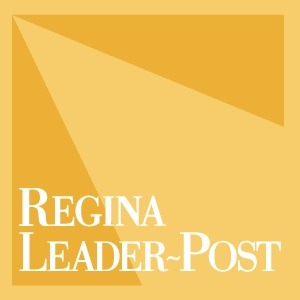The Canadian Federation of Independent Business is calling on the province to reduce the small business corporate income tax in the budget.
Trillian Reynoldson, Regina Leader-Post
As budget day approaches, the Canadian Federation of Independent Business (CFIB) is calling on the provincial government to provide tax and cost relief to Saskatchewan small businesses.
“Business owners have fought hard to make it through the last few years with the pandemic and all the restrictions that they faced,” Brianna Solberg, CFIB director of provincial affairs said in an interview Wednesday.
“The impacts of the pandemic were severe, but in many ways it’s more difficult now to be in business in 2024 than it was at the height of the pandemic because in the aftermath we’ve seen skyrocketing costs, heavy debts loads still, and skyrocketing interest rates as well.”
While Canada Emergency Business Account (CEBA) loans helped businesses stay afloat during the pandemic, Solberg said around 25 per cent missed the repayment deadline for partial loan forgiveness. This percentage represents around 7,200 small businesses in Saskatchewan that are still in debt.
“As they see that interest accumulate over the next few years if they try to pay off their debt, that could be the straw that breaks the camels back for many of them.”
Solberg said the increased cost for items such as food, fuel, rent, utilities, as well as decreased revenues at a time where they can least afford it have led to 17 per cent of Saskatchewan small businesses actively considering closing their doors, according to the CFIB’s pre-budget survey.
The annual survey was conducted in November and typically receives around 200 responses from Saskatchewan businesses. The main suggestion from business owners who participated in the most recent survey is for the province to reduce the small business corporate income tax rate for businesses making less than $600,000 back to zero per cent — the rate it was at during the pandemic — or freezing it at one per cent.
Solberg said the CFIB lobbied the province to keep the rate at zero per cent, but it was increased to one per cent in July 2023 and is set to double this July.
“If a business is earning $500,000, which would put them under the ($600,000) threshold, that’s $5,000 in tax at one per cent. If that goes up to two per cent all of a sudden, that $5,000 becomes $10,000,” she said. “When we’re talking about one or two per cent it seems small, but this is thousands of dollars for small businesses.”
The CFIB met with Saskatchewan’s Minister of Finance Donna Harpauer in January to share this suggestion and other recommendations from their pre-budget survey data.
“She’s very open to sitting down with us and having a discussion about it. Ultimately, I know she hears the concerns that business owners have and she understands them,” Solberg said. “But it’s ultimately up to them to put their money where their mouth is and provide some relief for businesses.”
Some of the CFIB’s recommendations include removing the PST on dine-in restaurant meals and property insurance, avoiding any PST expansions, introducing a securing small business rebate program and legislating the Workers’ Compensation Board’s surplus refund policy.
“All we can really do is hope that the voices of small businesses are considered and that all of these concerns are considered,” Solberg said.
The province said it recognizes the importance of small businesses to local communities and the economy, in a written statement provided by the Government of Saskatchewan on Wednesday.
“Our government temporarily lowered the small business tax rate in 2020 to help Saskatchewan small businesses recover from the pandemic, the rate was scheduled to return to 2% in July 2023 and our government extended the return to 2% by one year, to July 2024,” the statement continued.
Saskatchewan maintains the second lowest small business tax rate in the country, along with the highest threshold of any province at $600,000, the statement also noted. The provincial budget will be announced on March 20.
Treynoldson@postmedia.com


